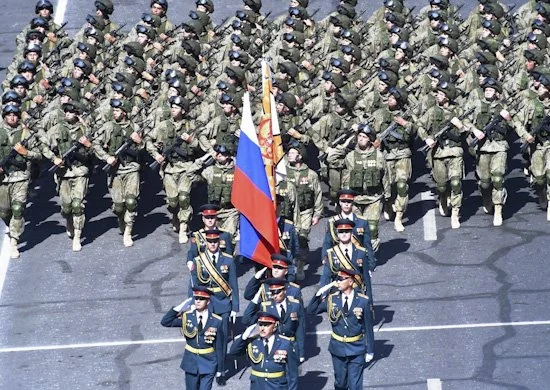No Easy EU Access For Russian Draft Dodgers
Russian Troops march during 2018 Parade (Wikimedia Commons).
Many Russian men have fled the country, after Russia’s decision on September 21 to mobilize additional troops and draft more civilians. This action has prompted a range of responses from European nations.
EU Home Affairs Commissioner Ylva Johansson said that Russians fleeing the draft should not be granted Shengen visas - a short-term visa that allows travel within the European Union - and that all new applications will be evaluated with an emphasis on security. Johansson emphasized the importance of considering the difference between applying for a tourist visa and applying for asylum, which she called “a fundamental right”.
To apply for refugee status in the EU, a person must be victim to acts of persecution as defined by the 2011 EU Qualification Directive.This definition includes being victim to acts that “constitute a severe violation of basic human rights:” including acts of physical or mental violence, discriminatory legal or judicial measures, discriminatory prosecution or punishment, among others. Another criteria includes “prosecution or punishment for refusal to perform military service in a conflict” which could be grounds for application for refugee status for Russian men fleeing the draft.
One country that has addressed this issue is Latvia, a former satellite state of the Soviet Union. Latvia’s defense ministry announced that they would “consider those who have received mobilization papers and are fleeing from Russia,” yet not consider those who could not prove that they had been drafted.
Latvia’s defense minister, Artis Pabrik, maintained that if Russians, who have been called upon to mobilize in support of the war effort, can show their mobilization papers they will be able to be admitted into a refugee camp. Those who have not received mobilization papers will not be able to be admitted to Latvia on a travel visa or with refugee status. Pabrik explained that they cannot allow tourists into their country who belong to a society “waging war against your neighbor,” meaning that Latvia will not allow Russian citizens to enter their country.
As the Russia-Ukraine war continues, EU countries, especially in Eastern Europe, will continue to grapple with the possibility of refugees from both Ukraine and Russia as people seek to escape violence.

